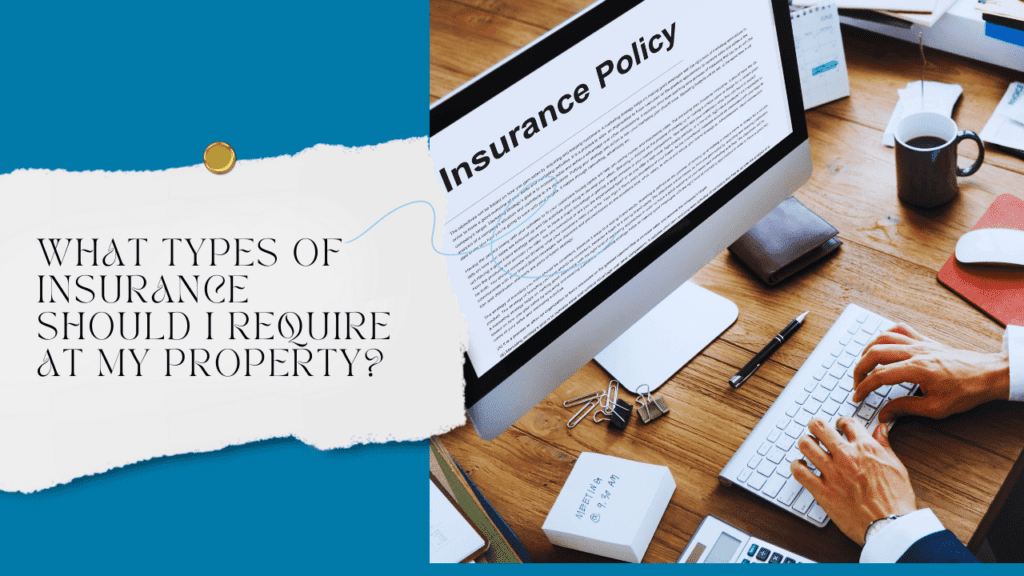
There are many strategies you’ll want to use when it comes to protecting your San Diego rental property investment. You’ll screen tenants carefully to ensure they are likely to take care of the home and pay rent on time while following the terms of the lease agreement. You’ll prioritize preventive and routine maintenance to ensure you’re limiting the number of emergency repairs. You’ll develop positive and respectful working relationships with your tenants so there are no surprises when they move out.
Or, you’ll hand over the leasing, management, and maintenance to a professional San Diego property management company.
No matter how you approach the management of your investment, one of the most important ways of protecting it is with insurance. This is a logical starting point when you invest in real estate. You’ve spent a lot of money on the property, and you want to make sure you’re protecting both its value and its condition.
You need adequate insurance.
We’re often asked by owners and investors what types of insurance they should have for themselves and what kind of insurance they should require from their tenants. We’re answering those questions in this blog, where we’ll explore how to protect yourself and your property with the right insurance.
Landlord Insurance: Protecting the Physical Property
The first type of insurance you’ll need when you rent out a property is landlord insurance. There are several parts to your landlord policy. The basic coverage is this: ensuring you can repair or replace any part of the actual property. If there’s a fire in the kitchen, you’ll need to repair the kitchen. If a tree crashes through the roof, you’ll want coverage for the roof.
The amount of insurance you need to cover the dwelling will depend on the property itself. Typically, your insurance agent will use the replacement value to determine how much coverage you need. Remember, the costs of repairs and replacements are always going up. You’ll want to evaluate your insurance policy for inflation and market changes.
Your landlord policy will cover the physical structure of the property as well as any associated buildings and structures, such as a garage. Any of your own personal property that’s inside the home will also be covered. This might be appliances, for example. The water heater is considered your property as well.
If you decide to rent out a property that you once lived in yourself, remember that a homeowner’s insurance policy won’t work. You have to convert that policy you had as an owner-occupant with a landlord policy. If you fail to do this, you might find that a claim isn’t covered.
Landlord Insurance: Liability
The second part of your landlord insurance policy is the liability coverage you need.
This liability coverage protects you more than it protects your property. If a tenant or a tenant’s guest is injured while at your property, you could be found liable. The liability coverage included in your landlord policy will protect you from any lawsuits or claims that are brought about. Make sure you have adequate liability coverage. The threshold is always changing, and while it may seem that a million dollars or more in liability I coverage is excessive, you never know what a jury is going to award a tenant who feels they were injured or mistreated while living in your property. It’s always a good idea to have more than you think you need.
Loss of Rent Coverage
You absolutely need loss of rent coverage when you rent out a home in San Diego.
Some landlord policies will include this. If your policy does not include it, make sure you buy an extra rider to ensure you’re covered. Loss of Rent policies will pay you anything you lose when your property becomes inhabitable during a covered loss. Think about our earlier examples; a kitchen fire or a tree falling through a roof. Your tenants may need to move out. When they move out, you won’t have any rent coming in. You may have to pay their hotel or other lodging bills. That’s a lot of money out of pocket if you don’t have loss of rent insurance.
Earthquakes and Floods
Two things will not be automatically included in your landlord insurance policy and will need to be purchased separately. These are flood insurance and earthquake insurance.
Earthquakes in California are always a risk. The damage that they can do to properties is substantial. Protecting yourself against the potential loss is something that many owners and investors are eager to do. Not all insurance companies will provide this coverage. You may need to work within state agencies to find the earthquake coverage that you want.
Floods are another matter. If your San Diego rental property suffers from flooding that’s due to a leak or a plumbing issue and a claim is filed right away, your landlord insurance policy will likely cover it. A flood that occurs from weather or natural disasters is something different, however, and there may not be coverage in your landlord policy. It’s something extra that you’d have to purchase.
The weather in California has been fairly unpredictable over the last few years. We’ve seen droughts as well as flooding. We’ve seen fires. Talk to your insurance agent about adding flood insurance to your policy. Depending on where you live and what your property could withstand in terms of water will dictate whether it’s necessary.
Requiring Renter’s Insurance
Renter’s insurance is an important part of protecting your investment, but it also plays a role in protecting your residents. Tenants often move into your property believing that your insurance covers their personal property.
It does not.
They need their own insurance in case something happens to their own belongings. If a pipe bursts and floods the property, damaging their electronics and their furniture, your insurance will not pay for those repairs or replacements. A renter’s policy, however, will pay for them.
Renter’s insurance doesn’t only cover the repair and replacement costs of personal property. It also covers the tenant’s liability.
Let’s say your resident leaves a bathtub running and forgets to turn off the water. When the entire property floods, there is bound to be a lot of damage. Instead of looking at your landlord’s insurance policy, the tenant’s policy could cover the repairs since it was the tenant’s actions that led to the water damage. If they leave the stove on in the kitchen and a fire starts, a claim could be filed against the renter’s insurance policy since the tenant’s negligence led to the fire.
This protects you and your own insurance from having to pay for any damage that could have been prevented.
Luckily, talking tenants into a renter’s insurance policy isn’t terribly difficult. It’s normally quite inexpensive, and if they have an auto insurance policy, it can usually be bundled for extra savings.
Put the requirement for renter’s insurance into your lease agreement. Ask for proof of insurance before move-in, and when the lease renews, make sure that your residents renew their renter’s insurance as well.
Home Warranties: Are They Similar to Insurance?
We are often asked about home warranties, and whether they’re a good idea for rental properties. A lot of owners see them as a complement to their insurance policies. It might work that way in a perfect world, but we don’t always recommend home warranties for investment properties.
If you have a warranty for your own home, it makes sense in a lot of ways. You can afford to wait for the warranty company to send out a vendor, make a diagnosis, and decide whether or not the issue is covered. There might be an even longer wait while repairs are scheduled and made.
With rental properties, you don’t have that kind of time, especially if it’s a habitability issue. We’ve found that home warranties don’t always work well with rental homes because:
- It takes too long for the warranty company to communicate with owners, tenants, and property managers. There’s rarely a sense of urgency.
- The vendors used aren’t always the best. As property managers, we like to maintain strict control over who does the work that’s needed at the properties we manage. We have high standards. The vendors sent over by warranty companies don’t always meet those standards.
- Warranties can be expensive, especially when you consider what you’re getting.
So no, home warranties are not similar to insurance. You do pay a premium for them, and then there’s a deductible that you need to meet. However, you don’t have a lot of control over the repair process, and it always seems to take too long, leaving tenants frustrated.
With good insurance and a great property management team managing your repairs, you’re in much better shape than you are with a home warranty.
 These are our thoughts on the insurance you need for your rental property. We’d be happy to tell you more and to make a referral to an insurance agent if you don’t already have one.
These are our thoughts on the insurance you need for your rental property. We’d be happy to tell you more and to make a referral to an insurance agent if you don’t already have one.
If you’d like some help with insurance, please contact us at Chase Pacific Property Management & Real Estate Services. We’d be happy to serve as your San Diego property management resource.
